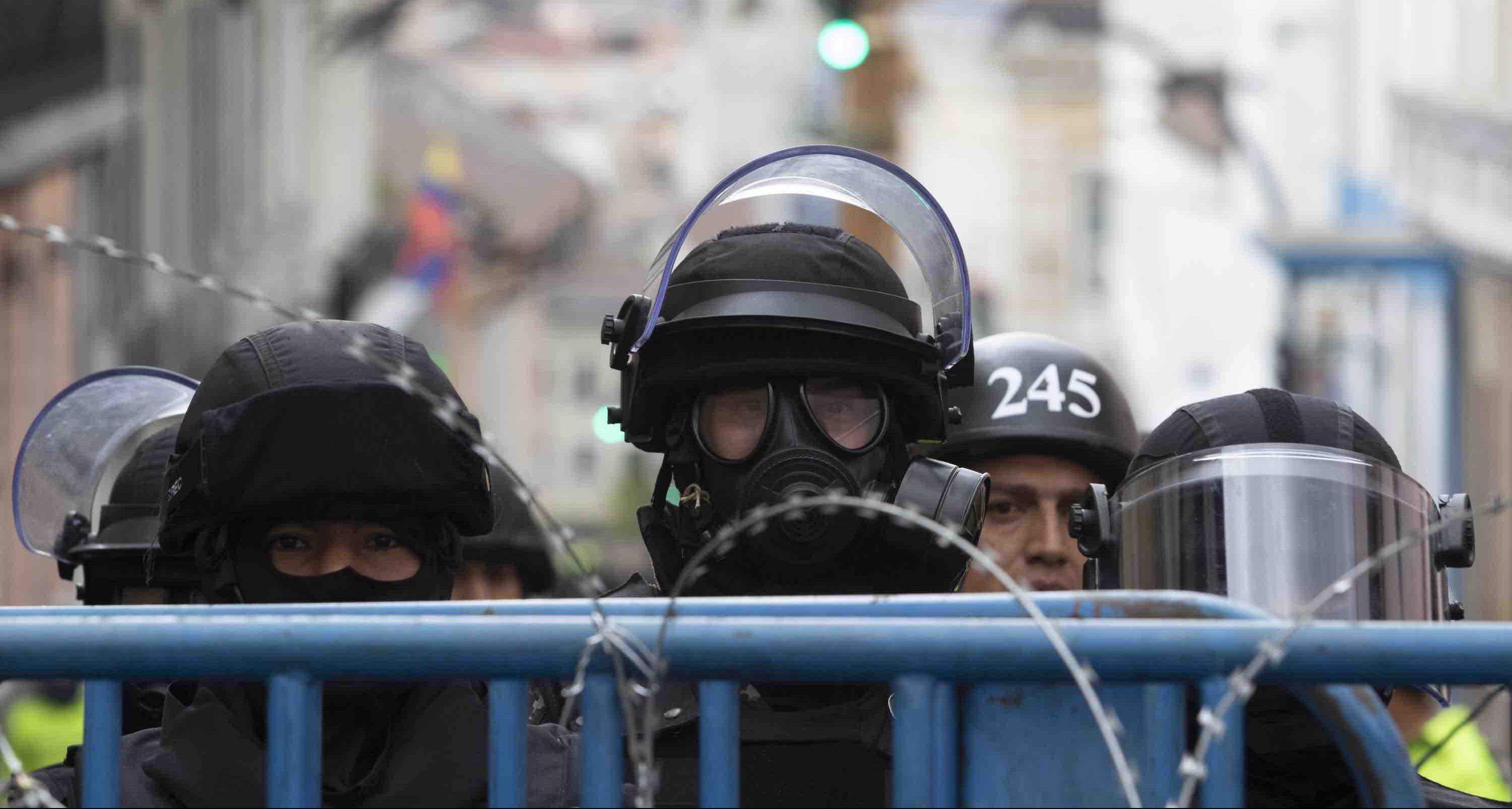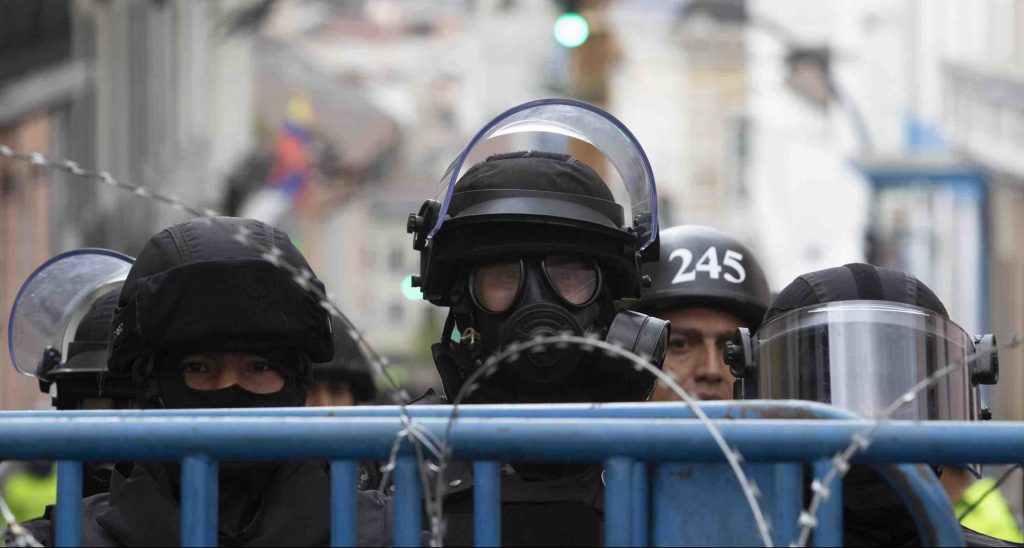Ecuador is in the middle of a political crisis. President Lenín Moreno’s decision to end fuel subsidies last week has led to an increase in the price of gas and consumer goods, and the people, especially the Indigenous communities that are most impacted by the resolution, aren’t happy.
Since last week, thousands of Ecuadorians have reportedly taken to the streets of Quito, the South American country’s capital, calling for a decision reversal. On Tuesday, one group of Indigenous demonstrators marched into the National Assembly, temporarily installing themselves as the people’s parliament before police officers forced them out. Chants of “¡Fuera Moreno!” echoed there and down surrounding streets.
“We are fighting for everyone and we are fighting to foresee the rights we all have and we can’t allow this,” leader of the Kayambi people, Luis Iguamba, told BBC. “So, everyone, be on the lookout and keep up the fight.”
Military and authorities have responded to the uprising with tear gas and tanks. More than 500 people have reportedly been detained in the massive protests, with 83 of those cases being disputed by a group of nonprofits who claim the detentions are irregular and have not been granted due process.
Police officers have reportedly been taken hostage as well. The Confederation of Indigenous Nations of Ecuador (CONAIE) declared a “state of exception” in Indigenous areas. In other words, they said, “military and police officers who come to our territories will be detained and subject to Indigenous justice.”
In response to the wave of protests, Moreno declared a two-month national emergency. He and his administration have relocated to Guayaquil, a coastal city more than a hundred miles away from the capital.
Addressing the nation in a prerecorded video Monday morning, Moreno said he blames Venezuelan President Nicolás Maduro and former Ecuadorian President Rafael Correa for the current state of the country. He believes the demonstration is the fruit of organized paid labor rather than collective discontent.
“Maduro has activated, with Correa, his plan for destabilization. They are using certain Indigenous sectors, taking advantage of their mobilization to loot and destroy [everything] in their path,” he said, adding that the calls are a “threat to democracy.”
The self-declared interim president of Venezuela, Juan Guaidó, seconded Moreno’s allegations.
Meanwhile, Maduro has joked about the accusations, saying he’d have to be “SuperMaduro” to do what Moreno has accused him of.
According to Reuters, seven Latin American countries, including Peru, Colombia and Argentina, stand with Moreno.
The president, who was elected in 2017, said that, despite the opposition, he would not back down from his decision to cut the subsidies.
Popular unrest in Ecuador has led to the forced removal of three past presidents.




